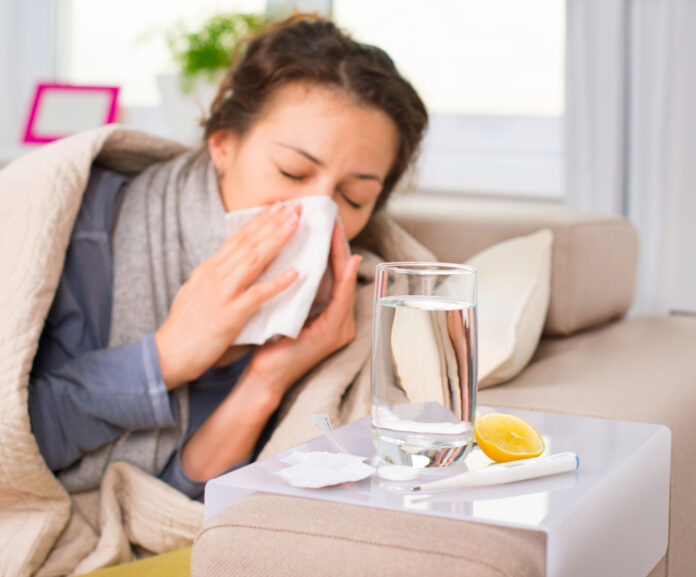It’s time to get your tissues ready! The Netherlands has officially entered its 2025 flu season.
The National Institute for Public Health and the Environment (NIVM) has crunched the numbers: last week, 58 in 100,000 people contacted their GP with flu-like symptoms.
With the threshold for “increased activity” being 53, this only means one thing: flu season is officially here. 🤧
What can I do about it?
You probably have questions like, “Can I prevent getting the flu?” “How do I treat it?” and “Can I skip my mother-in-law’s birthday party if I’m sick?”
Well, here’s all the information you need. 👇
Should I get the flu shot to avoid getting ill?
Short answer: no, it’s too late to get a flu shot. The vaccinations are only given before the start of the flu epidemic, as the AD explains.
The truth is that preventing the flu is very hard. As the AD points out, last year’s epidemic lasted nine weeks — that’s a long time to keep dodging this annoying winter visitor.
READ NEXT | All you need to know about going to the hospital in the Netherlands
However, there are a few good habits you can implement to try and snooze the sneeze:
- Keeping your distance (to avoid inhaling droplets sneezed or coughed by others)
- Cleaning frequently touched objects (such as door handles)
- Washing your hands regularly
- Ventilating crowded rooms
How do I know I’m infected?
There are two main types of viruses circulating in the Netherlands currently: the flu (in several variants), and the Respiratory Syncytial Virus (RSV).
Both manifest as an inflammation of your respiratory system (nose, mouth and airways), but the symptoms differ slightly.
READ NEXT | How to survive the Dutch winter: weather, clothing, and more
While RSV usually causes nasal congestion, sneezing, coughing and a sore throat, the flu has comparatively more serious symptoms.
It usually starts suddenly and immediately gives you cold chills, a runny nose, a headache, muscle pains, and a fever. Within 12 hours, the fever can rise to 39°C or higher, usually lasting 3 to 5 days.
What to do when you have the flu
If you’ve caught the flu, you have two important jobs: getting better and avoiding infecting others. There are good measures for both.
To recover from the flu, you should:
- Wait and rest, as it usually goes away by itself
- In case of acute pain or high fever, take paracetamol
- Drink lots of water (1.5 to 2 litres per day)
- Move moderately but don’t exert yourself too much
- Avoid doing sports, even for a few days after the fever has subsided
READ NEXT | How to register with a doctor in the Netherlands
To avoid infecting others, you should implement the same advice that was given to avoid spreading COVID-19:
- Stay home if you’re ill
- Avoid contact with others, especially if they are more vulnerable
- If you must meet people, wear a mask and sneeze/cough in your elbow
When do I need to see a GP?
In general, the NIVM advises against visiting your GP or the hospital with flu-like symptoms, as this is often unnecessary and might spread the infection further.
READ MORE | The ultimate guide to going to the doctor in the Netherlands in 2025
If you are concerned by your symptoms, for instance, if the fever comes back after going away, you faint, or have trouble breathing, you should call your doctor.
Dig what you’re reading? Get more of it! Join our WhatsApp channel or Instagram broadcast to get the latest news straight to your pocket. ⚡️
